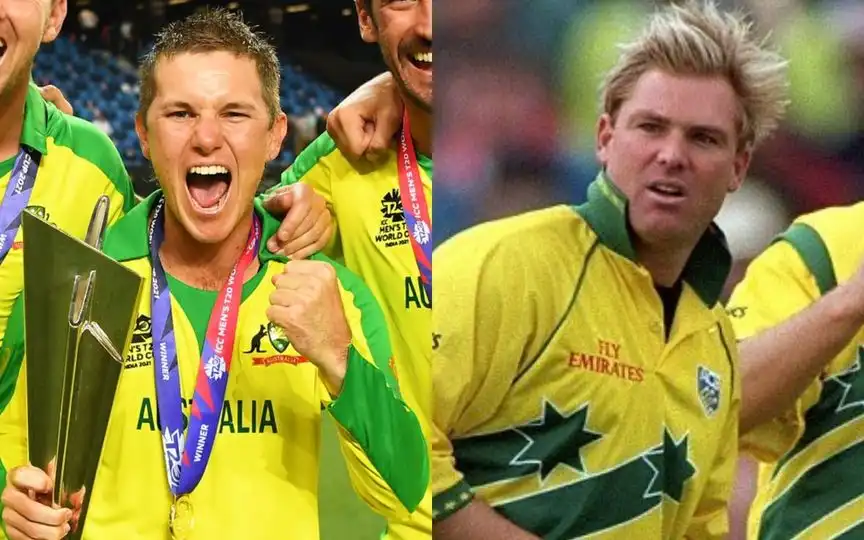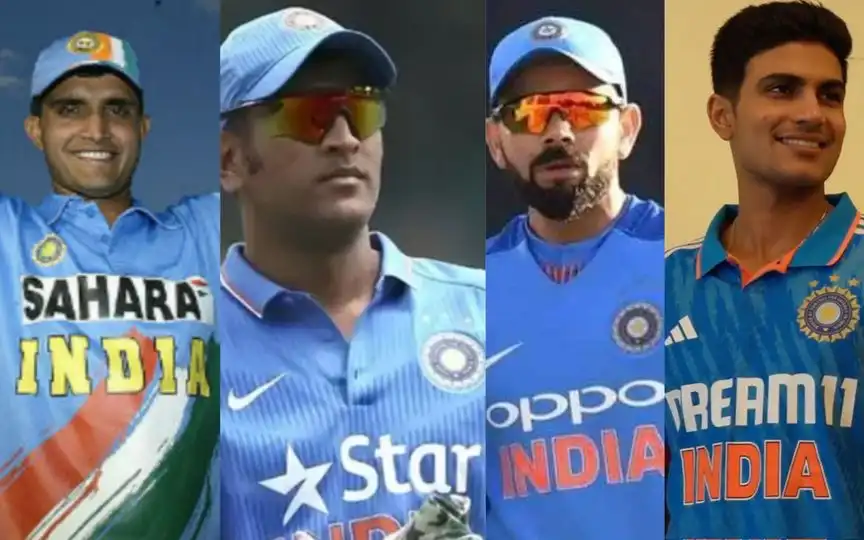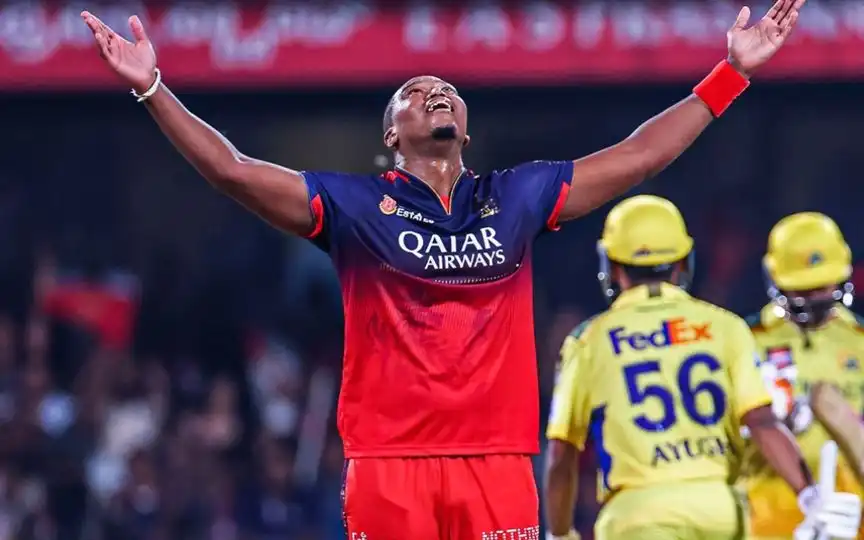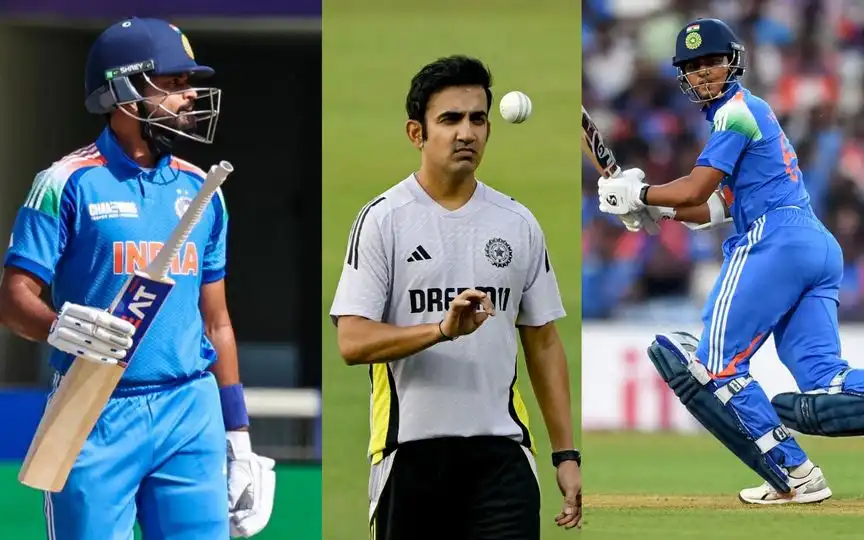![Australia lost the ODI series vs SA [Source: AFP]](https://onecricketnews.akamaized.net/parth-editor/oc-dashboard/news-images-prod/1755878838273_Australia_WC(1).jpg?type=hq) Australia lost the ODI series vs SA [Source: AFP]
Australia lost the ODI series vs SA [Source: AFP]
"When the lights are the brightest, pressure is the highest, crowds are the loudest, the best will arrive, the strongest will survive, the greatest will thrive"
Australia and 50-over World Cups inarguably form an eternal love story that has graced the cricketing folklore since the Men in Yellow bagged their first-ever title way back in 1987. The Aussies are known to bring out their best when it matters the most, and the World Cup editions have been the witnesses to their remarkable cricketing prowess for the last four decades.
However, as things currently stand, the defending champions are struggling to live up to the expectations in ODI cricket. A semifinal exit from the Champions Trophy, followed by an embarrassing home series defeat to South Africa, indicates a definite chink in Australia's armour.
As Mitchell Marsh and co. gear up for a World Cup title defence on South African soil, the assessment of the loopholes and prompt strategisation to plug them are the need of the hour.
The concerning state of Australia's ODI team
The Indian fans still get a traumatic experience while thinking about the night of 19th November 2023, when Travis Head's blitzkreig shattered India's dream of winning a World Cup on home soil. While the Australian side had surreal moments to celebrate that day, their performance has only gone downhill in the 50-over format ever since.
Statistically, Australia have lost nine out of eighteen ODIs after the 2023 World Cup final. This includes embarrassing series defeats from comparatively weaker sides like Pakistan and Sri Lanka, and also the recent loss against an in-form Proteas outfit.
The fact that Australia have failed miserably at home suggests their lean ODI patch, demanding quick remedies ahead of the 2027 World Cup.
The factors behind Australia's ODI decline
Although Travis Head's brilliance single-handedly led Australia to a clinical World Cup win against the odds, they can't shy away from several issues that still persist throughout their lineup.
While David Warner and Steve Smith, two integral members of the 2023 World Cup squad, have retired, the inconsistency of Marnus Labuschagne and an untested middle order have made it a daunting task for the Men in Yellow to play like the defending champions.
Labuschagne has struck just 241 runs in twelve innings at a mediocre average of 21.9 in ODI cricket since 2024. Skipper Mitchell Marsh has much better numbers, his aggressive game makes him vulnerable against robust attacks on spicy decks. Furthermore, he'll be 35 by the 2027 World Cup, so there's an immediate need for a quality backup before the marquee event.
Challenges to address before 2027 World Cup
Besides Steve Smith, Glenn Maxwell, and Marcus Stoinis also bid adieu to the ODI format recently. While Smith's retirement vacated a top-order slot, the ouster of Maxwell and Stoinis created two massive voids in the middle order.
Both Maxwell and Stoinis used to be handy contributors with the ball; so, their absence has not only increased Australia's finishing woes but also limited their number of bowling reserves in ODI cricket.
Therefore, the biggest challenge for Australia before the 2027 World Cup is to fill these vacancies with suitable alternatives. They might still find it tricky to introduce a batter as reliable as Smith to their top-order; however, the Big Bash League and domestic tournaments must be tracked efficiently to scout talents who can help Australia re-establish themselves as world beaters.
The great Australian killer instict needs a revival
A country like Australia that has won six World Cup titles shouldn't make the lack of talent an excuse for a potential debacle in 2027. We are aware of the fact that the Australians are pretty passionate about their cricket and leave no stone unturned when it comes to excelling in the ICC events.
Their unmatched zeal to snatch victory from the jaws of defeat compels their opponents to underestimate them at own peril. Be it Maxwell's immortal heroics against Afghanistan or Ponting's dominance in the 2003 World Cup final, Australians have always set the benchmark too high for others as far as sealing crunch moments in ODI World Cups are concerned.
So, it's high time they start identifying the talents across their country and give them ample game time in ODIs before it's too late. The likes of Cameron Green, Josh Inglis, Aaron Hardie and Tim David are already established names to form their batting core. So, all Australia need is a bit of fine-tuning of their top order and bringing in clutch players who can make overcoming setbacks look like child's play.
But before that, they must realise that their reputation is going to be at stake in the next World Cup. It's the realisation that can hit their self-esteem and push them to play like six-time World Champions and put the incredible Australian way of fighting that has kept them tiers above their competitors over the years.

.jpg)

.jpg?type=mq)


